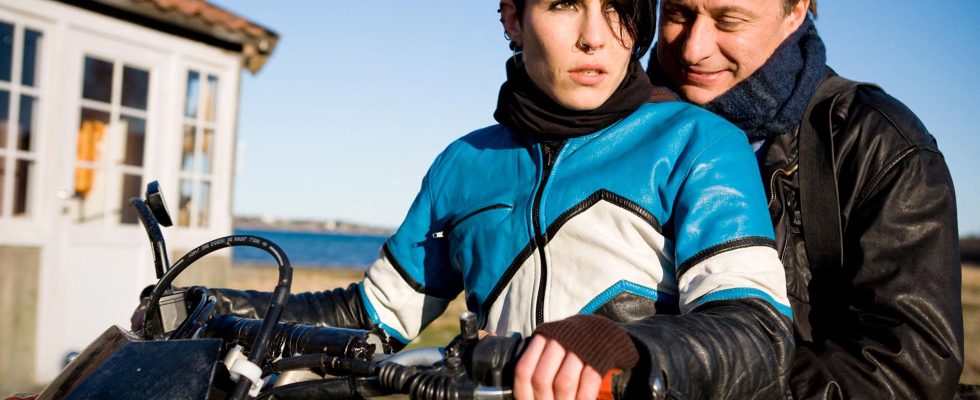Is it enough to have been a (very) successful book to deserve a sequel? ad vitam aeternam ? The question arises very seriously regarding Millennium, with the seventh part of the adventures of Lisbeth Salander and Mikael Blomkvist, published in France by Actes Sud at the beginning of November. Those who discover the universe Millennium by this opus will undoubtedly wonder how the series was able to arouse so much passion. Those who had devoured the first three volumes, the only ones written by Stieg Larsson, and had let themselves be carried away by the following three will find this one very bland.
The heirs of Stieg Larsson, who died in 2004 without even having seen his trilogy published, have done everything to reproduce, in The Girl in the Eagle’s Talons, which was what made the first opuses so interesting. The title first, directly inspired by volume 2, The girl who dreamed of a can of gasoline and a match. Then the rhythm, these very short chapters with an alternation of intrigues ending up coming together. But also diving into current events, yesterday the capitalist universe with its troll factories and the manipulation of information, this time in environmental questions and the secret struggle to monopolize energy resources.
The nods to the universe created by Stieg Larsson are obvious, but they ring false. Thus, the irruption of the motorcycle gang MC Svavelsjö, as violent as ever, but we wonder what they are doing in the depths of Lapland. Thus, this new character, niece of Lisbeth Salander, insensitive to pain like her father, but whose exceptional talents are hard to believe, such as that of “feeling” the combination of safes. Even the “bad guy”, played by a business manager reduced to living in a wheelchair due to malformations, struggles to convince.
Millennium becomes commonplace
The characters of Mikael Blomvkist and Lisbeth Salander, yet at the heart of the success of Millennium, end up being nothing more than a shadow of themselves. The first, an investigative journalist without fear and reproach, who recounts the misdeeds of the buccaneers of capitalism, is now a grandfather and without a newspaper. Professionally, he is offered nothing other than to participate in a podcast and he wanders around, desperately calling his former partner (and mistress), Erika Berger, to try to regain his footing. The second becomes the caricature of itself. Details, yesterday simple traits of a character maintaining distant relationships with showers and passionate relationships with pizza, become central and make the whole thing artificial. Neither the exacerbated feminism of Lisbeth Salander, nor the struggle of the independent journalist against those in power survive this seventh title.
To better fit the series, Karin Smirnoff, the new pen chosen to continue Millennium, is presented as a single mother, having sold 800,000 copies of a trilogy in Sweden and now living in a hamlet of 12 inhabitants. When it came to taking over from Stieg Larsson, criticism was fired against the chosen author, David Lagercrantz. Because he was best known to the general public for a biography of the footballer Zlatan Ibrahimovic, because he had never tried his hand at the genre. But the Swede took up the challenge with What doesn’t kill me, released in 2015, offering a solid adventure book, pleasant to devour in winter by the fire. He knew how to renew the intrigues while remaining faithful to the main characters and creating very credible secondary ones, like Lisbeth Salander’s sister.
The three volumes by David Lagercrantz certainly did not reach the sales peaks of the original trilogy (between 1.3 million copies and 980,000) but they were not unworthy, with, successively, 471,000 copies, then 275,000 and 161,000 sold in France. At the end of the sixth episode, David Lagercrantz made Lisbeth Salander say “it’s time to move on”. The heirs of Stieg Larsson decided otherwise. At the risk of agreeing with the writer’s companion who, after his death, was opposed to Millennium become an industry. With this seventh volume and while two others are announced, Millennium is becoming commonplace, undoubtedly also a victim of the abundant supply of “Swedish thrillers” in bookstores in recent years. The 2023 vintage will have at least one virtue, that of supporting the Actes Sud house which underwent a workforce reduction plan in the spring and a loss-making year in 2022.
Millenium, The Girl in the Talons of the Eagle. By Karin Smirnoff, trans. from Swedish by Hege Roel-Rousson. Actes Sud, 432 p., €23.80.
.
